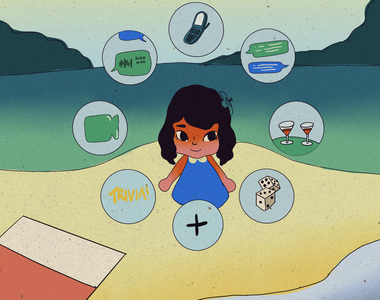
Often, when faced with unfair treatment from people around us, we harbor strong feelings of resentment that can last for years. There are times when this anger lasts so long that people don't let it go for decades. But what happens when we are not yet ready to forgive? And how should we approach forgiveness if we don't think it's the right time?
Science, for more than 30 years, has shown that forgiveness can be a very effective way to eliminate anger. Forgiveness can bring significant improvements in emotional and physical health. Women who have experienced severe trauma, men with heart problems, and people who have experienced great injustices have seen significant improvements after deciding to forgive.
However, the forgiveness process should not be forced or rushed. When people around us put pressure on us to forgive, sometimes the opposite can happen: The feeling of resentment increases and we feel that we are not yet ready for this step. And this is not the problem with forgiveness itself, but with the way it is approached by those who think we should do it.
Forgiveness is a personal decision and should come naturally, when we are emotionally ready for it. Here are some tips to keep in mind when it comes to forgiveness:
1. Forgiveness is a personal choice
No one can force you to forgive. If you feel that forgiveness is too big and too fast for you right now, it's okay to leave it for later. Everything has to come at the right moment for you.
2. The meaning of forgiveness
Forgiveness is often confused with reconciliation. Forgiveness does not mean going back to the person who hurt you or allowing that person to hurt you again. Forgiveness is a moral act associated with letting go of negative feelings, but it does not necessarily require restoring the relationship with the person who wronged you.
3. Forgiveness does not mean justice
You can forgive and seek justice at the same time. Forgiveness does not mean justifying wrongdoing or letting it go. It simply means that you choose to no longer carry that burden within you.
4. Listening to your feelings
If you feel angry, upset, or unappreciated, it's important not to ignore that feeling. Forgiveness isn't a magic solution that instantly makes these feelings go away, but it can help the healing process when you're ready.
5. When forgiveness becomes part of your healing
Some people, after a period of reflection, find that forgiveness can be a powerful tool for letting go of pain and moving forward. This is a powerful choice, but it should come at a time when you are emotionally ready.
Suggested articles:







